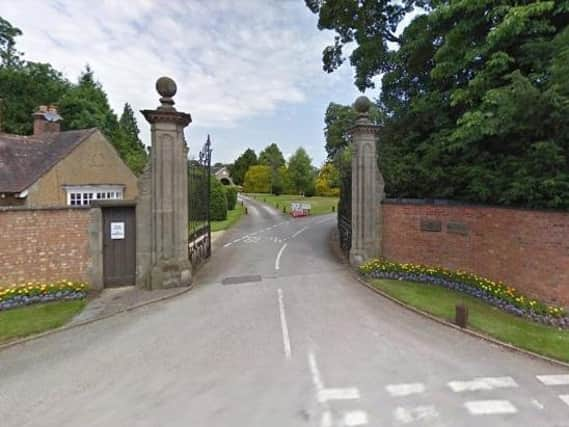£9k legal bill for south Warwickshire wedding company who renovated historic building without listed building consent


A luxury wedding company which carried out extensive renovations to an historic building in south Warwickshire without listed building consent has been landed with a near £9,000 legal bill.
Country House Weddings Limited bought the 18th century, Grade II listed Bourton Hall in Bourton-on-Dunsmore in 2019 with a view to converting the hall into a luxury wedding venue, complete with a chapel, banqueting hall and 21 en-suite bedrooms.
Advertisement
Hide AdAdvertisement
Hide AdAnd the family-run company was hauled before Magistrates after the renovations, which one councillor described as riding 'roughshod over the laws which protect buildings of historic importance'.
The fcompany, which owns five other wedding venues across the country, contacted Rugby Borough Council via its planning consultants in September 2019 to outline its plans and seek comments on the proposed change of use of the building, which had previously been the office headquarters of an international charity.
A council planning officer requested details of the building works the company proposed to undertake, which the planning consultants accepted were likely to require listed building consent.
Following a site meeting in October, a planning application was submitted on November 11 2019, together with an application for listed building consent to carry out a range of renovations.
Advertisement
Hide AdAdvertisement
Hide AdBut when the planning officer visited the hall on December 4 to erect the site notices detailing the applications, it was clear building work had started.
The officer went into the hall to investigate and met Harry Bramer, founder of Country House Weddings Limited, who explained work on the renovations had started as the company had deadlines to meet - including a promotional photo shoot before Christmas.
After warning carrying out the renovations without listed building consent was an offence, the officer advised work to stop immediately.
Later that day, the officer and a colleague returned to the hall and served Mr Bramer with a notice to stop the renovations, and he was reminded the work constituted a criminal offence and was issued with a caution under the Police and Criminal Evidence Act.
Advertisement
Hide AdAdvertisement
Hide AdBut on making a further visit to the hall on December 17, the officer discovered renovation work was still taking place.
When the officer reiterated the seriousness of ignoring the notice and caution, and asked the building contractor about other projects undertaken with Country House Weddings Limited, he said: "We may have bent the rules at the other locations."
At Coventry Magistrates Court on Wednesday December 23, Country House Weddings Limited and Bourton Hall Limited pleaded guilty to breaching section 7 of the Planning (Listed Buildings and Conservation Areas) Act 1990.
Magistrates heard a range of work had been carried out without consent, including the removal of the floor in the hall's chapel, alterations to doorways, plastering, painting and plumbing, and the removal of partition walls.
Advertisement
Hide AdAdvertisement
Hide AdIn mitigation, the court was told the work had been granted permission in May 2020 with no objections from English Heritage.
Magistrates heard the company regretted carrying out the work without consent, but stressed specialist architects and heritage consultants had been employed on the project, and all renovations were sympathetic to the hall's heritage.
The company was fined £4,000 and was ordered to pay the council's costs of £4,649, together with a victim surcharge of £181.
Speaking after the hearing, Cllr Jill Simpson-Vince, Rugby Borough Council portfolio holder for growth and investment, said: "Our planning team aims to support applicants through the planning process, offering pre-application advice to avoid mistakes which can cause unnecessary delays to developments and increase costs.
Advertisement
Hide AdAdvertisement
Hide Ad"In this case, our advice was cynically ignored in order to ride roughshod over the laws which protect buildings of historic importance and start building work before the necessary consent had been secured.
"We have no hesitation in prosecuting individuals or companies who try to circumvent the planning process, and the substantial fine issued by magistrates in this case shows the courts also take such offences very seriously."